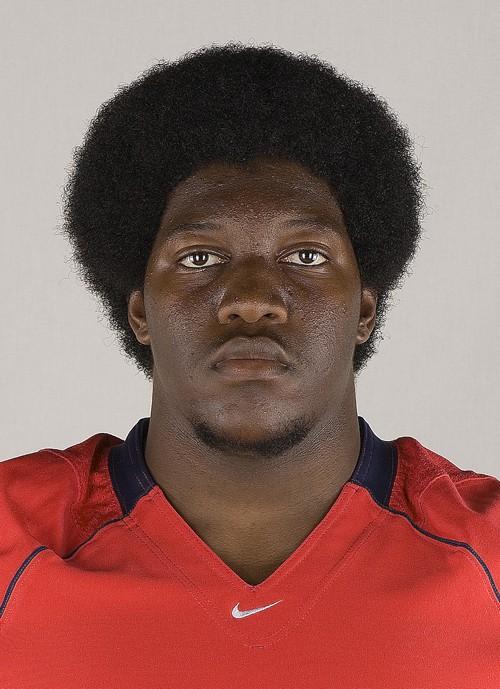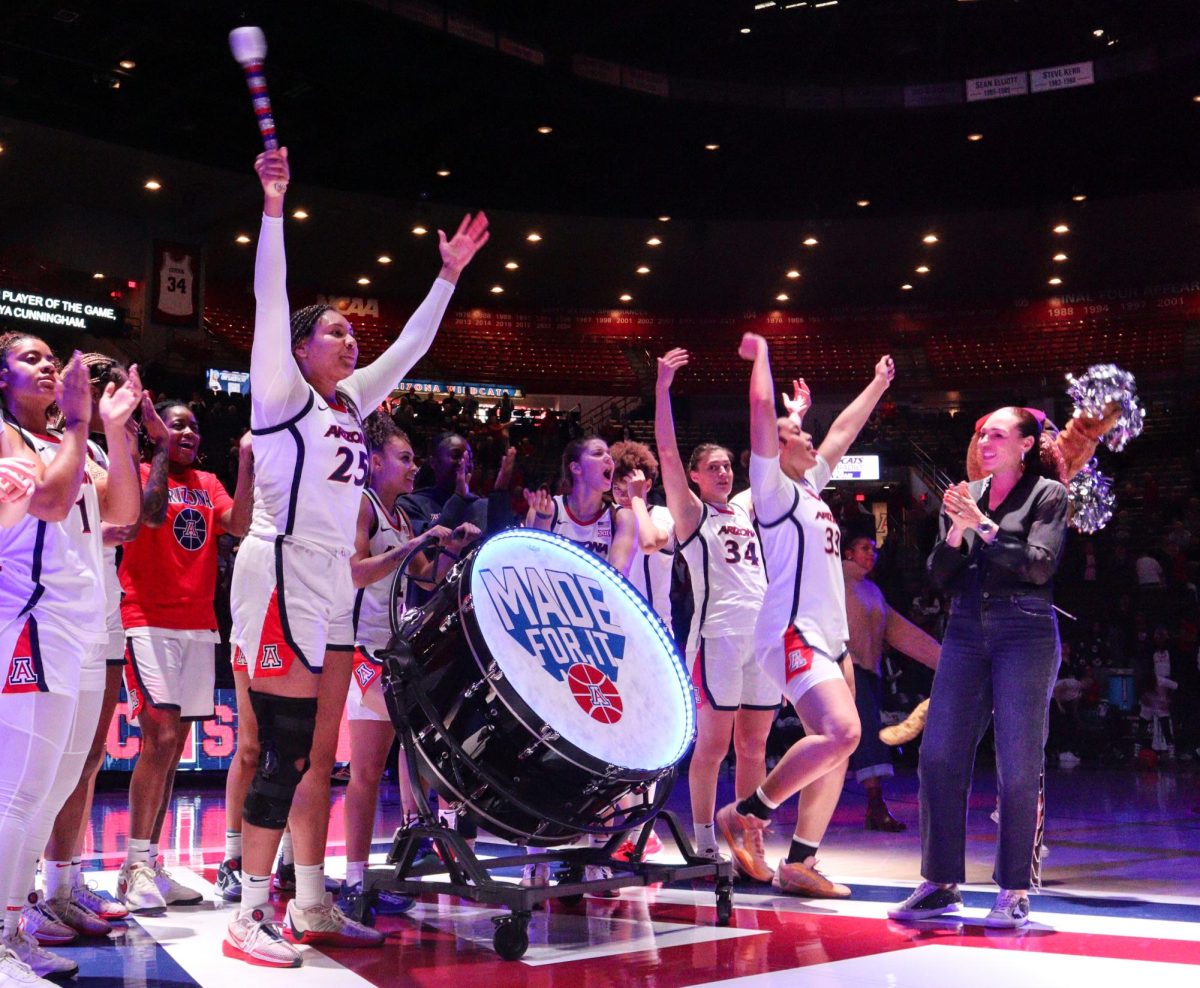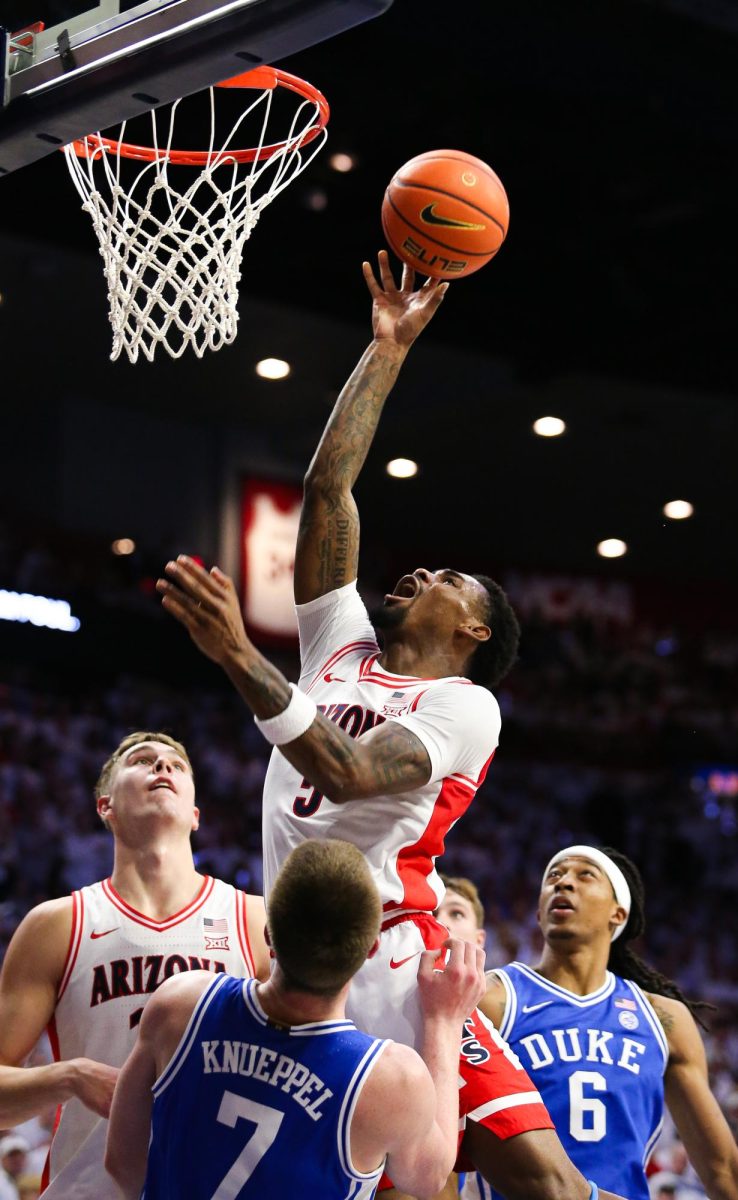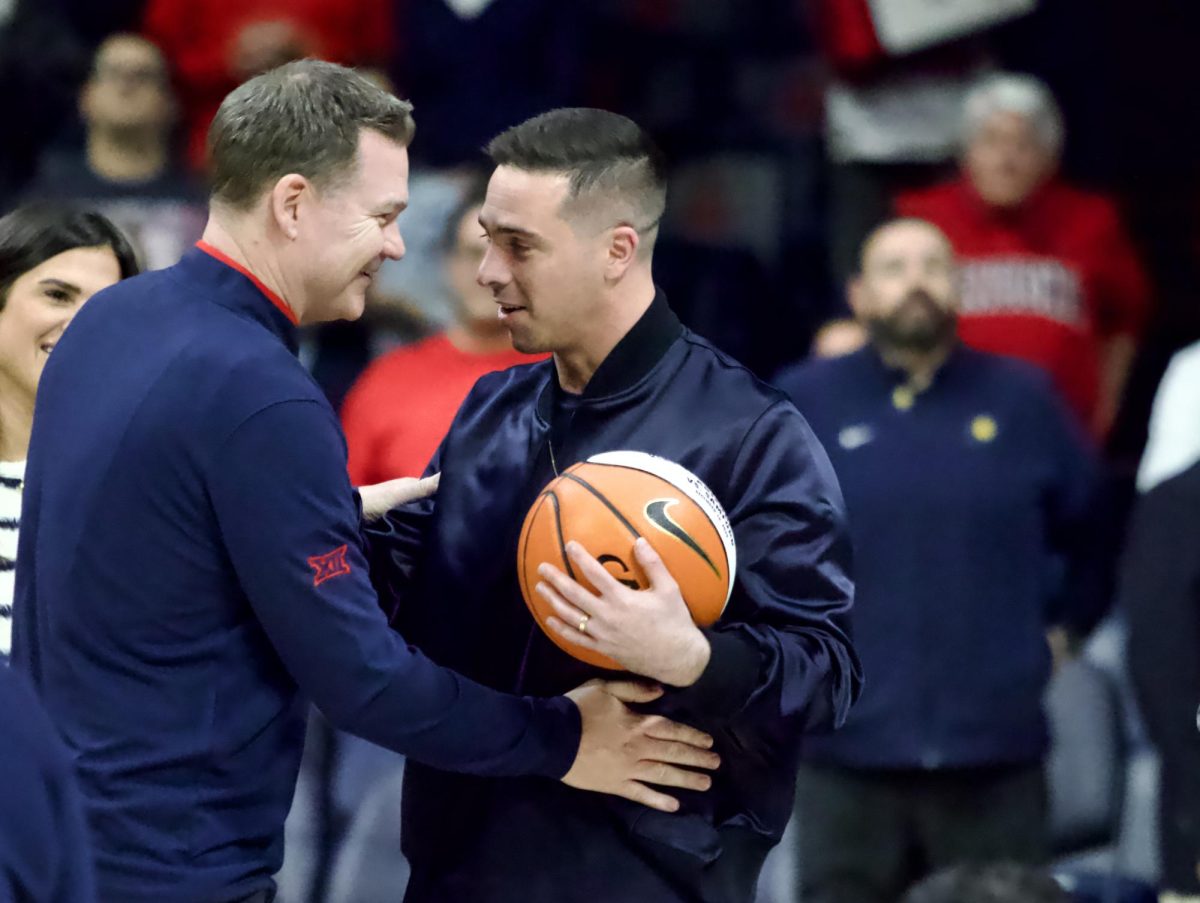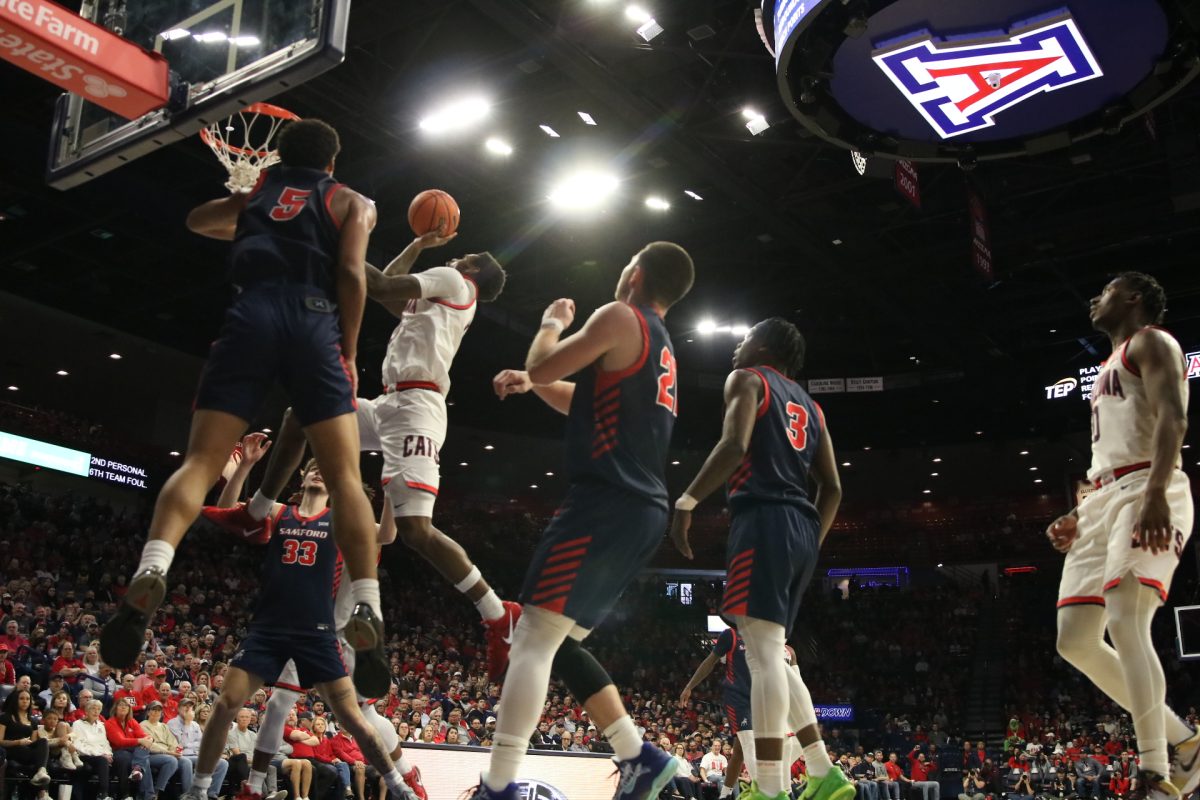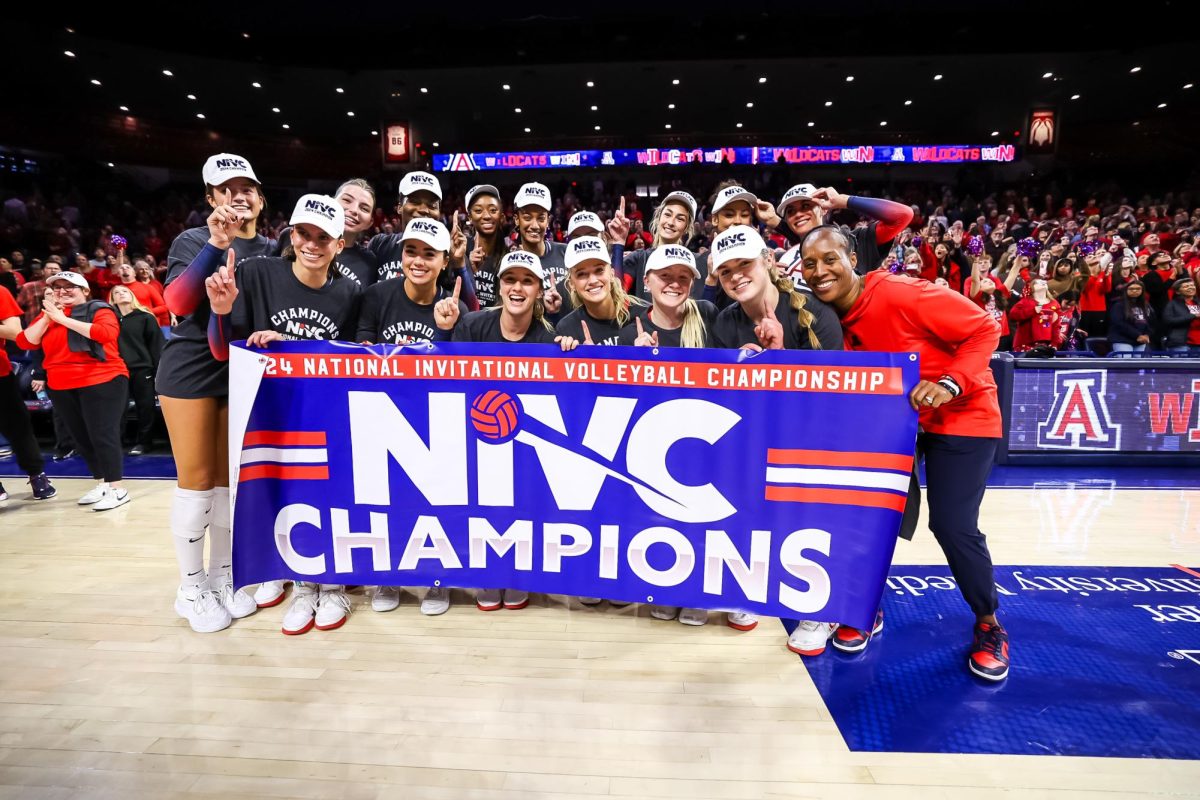All eyes were on Josh Lewis’ sexually explicit video his sophomore year. But after many portrayed the ex-football player as the criminal, Lewis became the victim of racism.
• • •
Wild pool party. Alcohol by the gallons. He’s fondling his girlfriend without much regard for those watching.
Hand up her skirt. Minding his own business. Unknowingly, he’s targeted for off-field mayhem that every athlete at every level fears the most.
From a few feet away, some complete stranger catches the scene on camera and posts the video on YouTube.com.
Within hours it’s on the popular gossip Web site TheDirty.com in a prime spot for humiliation, embarrassment and reputation homicide.
Josh Lewis, a sophomore at the time, had some explaining to do — to his friends, his family and most notably his football coach, Mike Stoops. The walk-on UA defensive end needed a few weeks to sort through the mess and clear the air filled with gossip and outrage calling for drastic discipline.
So Stoops suspended him.
“”People get a kick out of other people’s mistakes and bad decisions and there’s really nothing you can do about it,”” said Lewis in his first public interview now more than one year after the incident and aftermath.
Stoops and school officials tried to hush the gossip. Too late. It’s way too shocking and especially interesting because the bad guy is an Arizona defensive end.
Athletes’ misbehaviors always become a target in itself, but that’s not why he was portrayed as the bad guy.
Lewis is black. The woman is white. Outraged viewers immediately assumed it was sexual assault or rape, calling for everything from expulsion to jail time.
In fact, no charges were even pressed against Lewis.
Nobody knew who the girl was, or if she was actually yelling “”Stop, Josh”” as heard in the video. The unknowns only fueled an anonymous onslaught of people portraying him as a criminal.
Now beginning his senior year — and permanently removed from the football team — Lewis and his girlfriend at the time still don’t know who posted the video of them.
More than 100,000 views later, the video from the infamous Starr Pass pool party was taken off YouTube.
But the wounds will always remind him of the time he was a victim.
• • •
Mega off-campus apartment complexes boast some of the biggest pool parties around. When Playboy ranked UA its No. 5 party school last year, many credited those signature pool parties and videos capturing them on YouTube.
At his apartment on a Saturday morning in April, Lewis began pre-drinking with his girlfriend and her roommates. Just like the thousands of students that arrived at Starr Pass, they soaked up the scene, had a fun time and “”just started hooking up wherever,”” Lewis said.
“”We didn’t care at all who was watching or what else was going on,”” Lewis said.
Somebody wasn’t only watching.
The next day, friends informed Lewis that a video had been posted on TheDirty.com and urged him to take a look.
“”When I did I freaked out,”” Lewis said. “”When my girlfriend and her friends saw it they were all in shock. Everyone was asking my girlfriend questions about me thinking that she had been sexually assaulted. I told my parents what happened and they were upset that I would let myself be vulnerable to such an attack.””
Lewis compared his aftermath to the Henry Louis Gates incident earlier this summer. Gates, a black Harvard scholar, was arrested outside his own home after officers received a 911 call of potential trespassing. It sparked racial debate and tension, just like the treatment Lewis received.
One message board poster on goazcats.com said: “”That guy should be kicked off the team, kicked out of the University and placed in prison.””
Had the races been reversed, perhaps the controversy wouldn’t have become a story of its own.
“”In my situation I was hooking up with my girlfriend and it was made to look like a rape incident,”” Lewis said. “”The comments I received were basically referring to me as a monster of a human being. Even talking about this now just reminds me of just how bad the cruelty and ignorance of people can be.””
• • •
As if adjusting to college life is difficult enough, student-athletes face little margin for error in a quicker-than-normal maturation process. They’re not just students — they’re public figures facing ensuing pressures in the public eye.
Each year, student-athletes get an orientation specifically designed for instances like Lewis’ pool party mishap. One segment gaining more and more attention recently: UA athletics now takes a firm approach to curb careless usage of social networks.
While the UA can’t legally censor a student’s freedom of speech, it highly recommends student-athletes to keep photos private.
“”If I do something bizarre at a party that I know is going to be not very good, I might get pictures taken,”” UA athletics director Jim Livengood said in an interview with the Daily Wildcat earlier this year. “”When I figure out the next day that it can be harmful, it’s too late. That’s the scary thing.””
Lewis, a Phoenix native, can echo that same awareness having experienced it first hand.
“”Back then I was just an unheard of walk-on athlete and I really didn’t see myself as any different from any other college student,”” Lewis said. “”I quickly realized that me being an athlete means something to a lot of people.””
• • •
So far there haven’t been any long-term affects from the incident. He’s still gotten numerous jobs despite being one Google search away from a potential red flag to employers.
But his personal record is still clean and Stoops will even write his letter of recommendation for medical school.
“”It was emotionally and spiritually tough for a very long time, but I feel like such a stronger person for being able to endure something like that.
“”It’s just the way the world works,”” Lewis said.
Unfortunately, it still is.
— Bryan Roy is a journalism junior. He can be reached at media@wildcat.arizona.edu.



